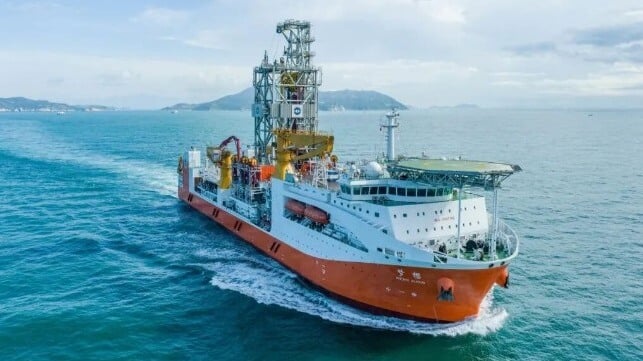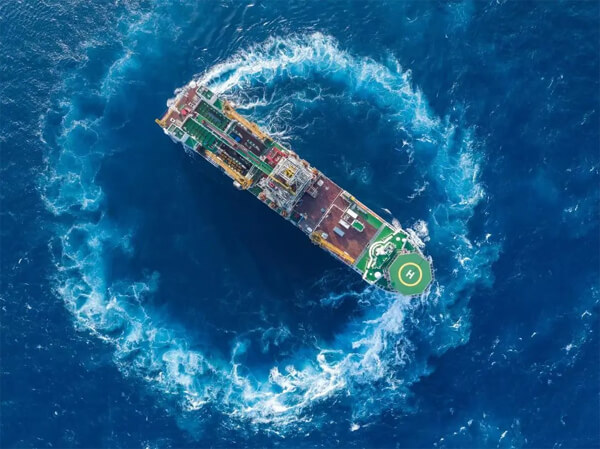China Commissions Its First Deep-Ocean Drillship

In its quest to access deep-ocean resources, China commissioned its first drilling vessel at a shipyard in Guangzhou. The ultra-large drillship, the Meng Xiang (Dream), is a significant leap in China’s ambition for deep-sea exploration, including mineral resource surveys.
In a congratulatory letter to celebrate the commissioning of the vessel, Chinese President Xi Jinping noted that the design and construction of the vessel is a culmination of the nation’s unique resource mobilization system.
“I hope that we can keep working hard to make the best use of this important science and technology asset, and enhance innovation and creativity in marine science,” said Xi in his letter, which was read out by Vice-Premier He Lifeng during the commissioning ceremony.
The drillship was developed by the China Geological Survey of the Ministry of Natural Resources in close collaboration with the Institute of China Shipbuilding, which helped in designing the vessel. It was built by Huangpu Wenchong Shipyard, part of the Chinese State Shipbuilding Corporation (CSSC). The ship’s construction began in November 2021 and was completed last year in December and undergoing testing and commissioning since then. The vessel is scheduled to begin its maiden voyage by the end of this year.
With a length of 590 feet (180 meters) and 108 feet (33 meters) in width, Meng Xiang becomes the largest Chinese research vessel. It has a displacement of 42,600 tons and a range of 15,000 nautical miles. It accommodates 180 people and according to the shipyard was designed to operate in strong sea conditions (level 6) as well as to safely survive a super typhoon.

Meng Xiang has an advanced dynamic positioning system and a broad range of deep ocean drill capabilities (Huangpu Wenchong)
The China Geological Survey (CGS), highlights that Meng Xiang is the world’s only deep-ocean drilling vessel capable of conducting ultra-deepwater drilling at depths of 11,000 meters. Analysts believe the ultra-large drillship, featuring state-of-the-art drilling systems, will help China lower expeditionary costs for deep-ocean studies and surveys.
Notably, the vessel is also the first in the world to integrate functions such as deep-ocean scientific drilling, oil and gas exploration, and natural gas hydrate investigation and trial extraction.

that matters most
Get the latest maritime news delivered to your inbox daily.
“The Deep-Earth core samples that the vessel will help retrieve will provide global scientists with direct evidence to study plate tectonics, oceanic crust evolution, and ancient marine climates,” the Director of Guangzhou Marine Geological Survey, under CGS, Xu Zhenqiang told Xinhua news.
The shipyard highlights the vessel made “breakthroughs” in 50 core technologies solving problems such as the integration of multiple functions including ocean scientific drilling, deep-sea oil and gas exploration, and natural gas exploration all on the same platform. The ship features a DP-3 dynamic positioning system based on a closed-loop energy storage system. It has onboard laboratories for real-time research of all marine disciplines. It also has a comprehensive information system able to gather and analyze data in real-time from more than 20,000 monitoring points.
